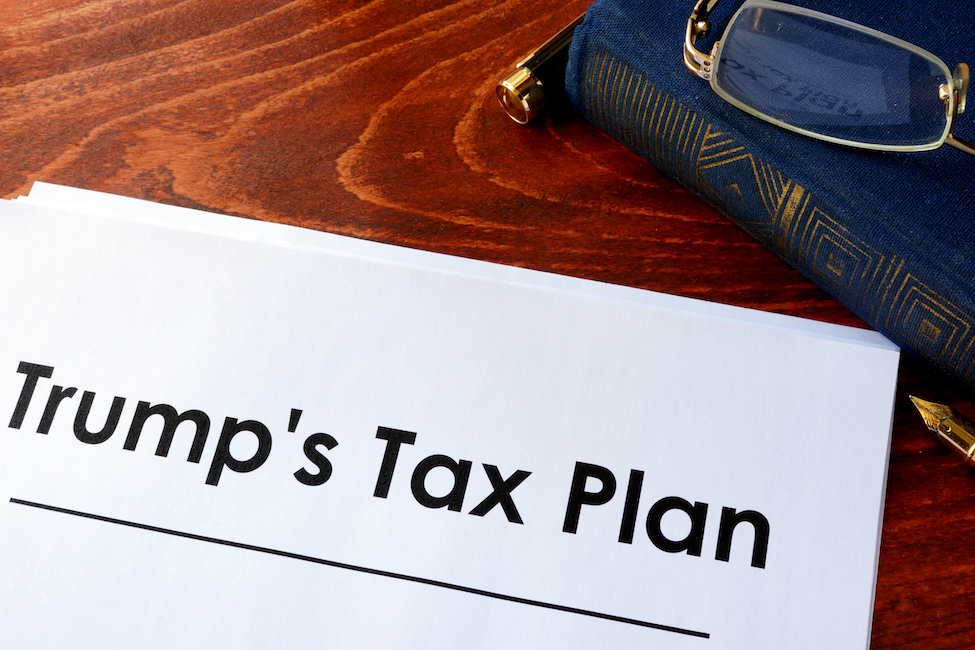∑¨«—÷Ī≤•Poll Shows Americans Split on Tax Reform Proposals
Americans are split on the tax reform proposals being considered in Washington, D.C., and most believe U.S. President Donald Trump should release his own tax returns, according to a national survey by FAU.

Americans are split on the tax reform proposals being considered in Washington, D.C., and nearly 65 percent of respondents believe U.S. President Donald Trump should release his own tax returns before making significant changes to the tax code, according to a national survey by the ∑¨«—÷Ī≤• Business and Economics Polling Initiative ().
After hearing about some of Trump’s tax proposals, 34 percent support his plan, while 41 percent oppose it and 25 percent are not sure. Support for the plan appears to increase with age and income. Those over 50 years of age support the plan 41 to 39 percent, while those under 50 oppose it by a margin of 44 to 28 percent. The plan received 64 percent support from those who earn more than $125,000, but only 46 percent support from those earning $75,000-$125,000 and only 16 percent from those earning less than $25,000.
Two-thirds respondents to the national online poll conducted April 28-30 said they thought taxes were too high, while 5 percent said they were too low and 28 percent said they were just about right. However, more than 40 percent disagree with the notion that lowering taxes for higher earning individuals and corporations can stimulate the economy, leading to economic growth and greater wealth for everyone.
‚ÄúAmericans are a little bit skeptical of trickle-down economics,‚ÄĚ said , Ph.D., director of the BEPI.¬† ‚ÄúThey don‚Äôt believe cutting taxes to the wealthiest individuals and corporations will benefit households across all income levels.‚ÄĚ
Roughly half of the respondents oppose a proposal on reducing the top marginal tax bracket from 39.3 to 33 percent, while 53 percent support doubling the standard deduction that people can claim on their income tax returns.              
Americans are split on a proposal to repeal the 3.8 percent tax on investment income, which yielded $18.3 billion in 2015 to help fund the Affordable Care Act, with 34 percent supporting it, 37 percent opposing and 29 percent not sure. Trump’s proposal to reduce the corporate tax rate from 35 percent to 15 percent received 37 percent support, while 41 percent oppose the cut and 22 percent are not sure.
More than two-thirds of respondents support allowing mortgage interest to be deducted from an individual’s taxable income, while 12 percent oppose and 20 percent are not sure. Trump’s proposal to abolish the estate tax, imposed on the value of all property inherited when someone in a family dies, was also popular among respondents, with 47 percent supporting it, 32 percent opposing and 21 percent not sure.
When asked if they would be more or less likely to support Trump’s tax plan if they knew it would reduce federal tax revenue by $3 trillion to $7 trillion over a decade, nearly 40 percent said they would be more likely, 26 percent would be less likely and 34 percent were not sure. 
‚ÄúThere is a reason why it is difficult to get a tax proposal through Congress,‚ÄĚ said , Ph.D., associate professor of political science at ∑¨«—÷Ī≤•and a research fellow of the Initiative. ‚ÄúHistorically, Americans have had very different views on the best approaches and what makes the tax system equitable. President Trump has a long way to go in order to convince Americans to follow the White House proposal.‚ÄĚ
Additionally, respondents also gave the president an approval rating of 38 percent.
The survey of 812 Americans, 18 years of age and older, was administered through (SSI) and has a margin of error or +/- 3.4 percent. Breakdown by political party was 41 percent Democrats, 26 percent Republicans, 25 percent Independents and 8 percent not registered.
For more information, contact Monica Escaleras, Ph.D., director of the BEPI, at 561-297-1312 or mescaler@fau.edu , or visit .  
-FAU-
Tags: faculty and staff | students | research | business